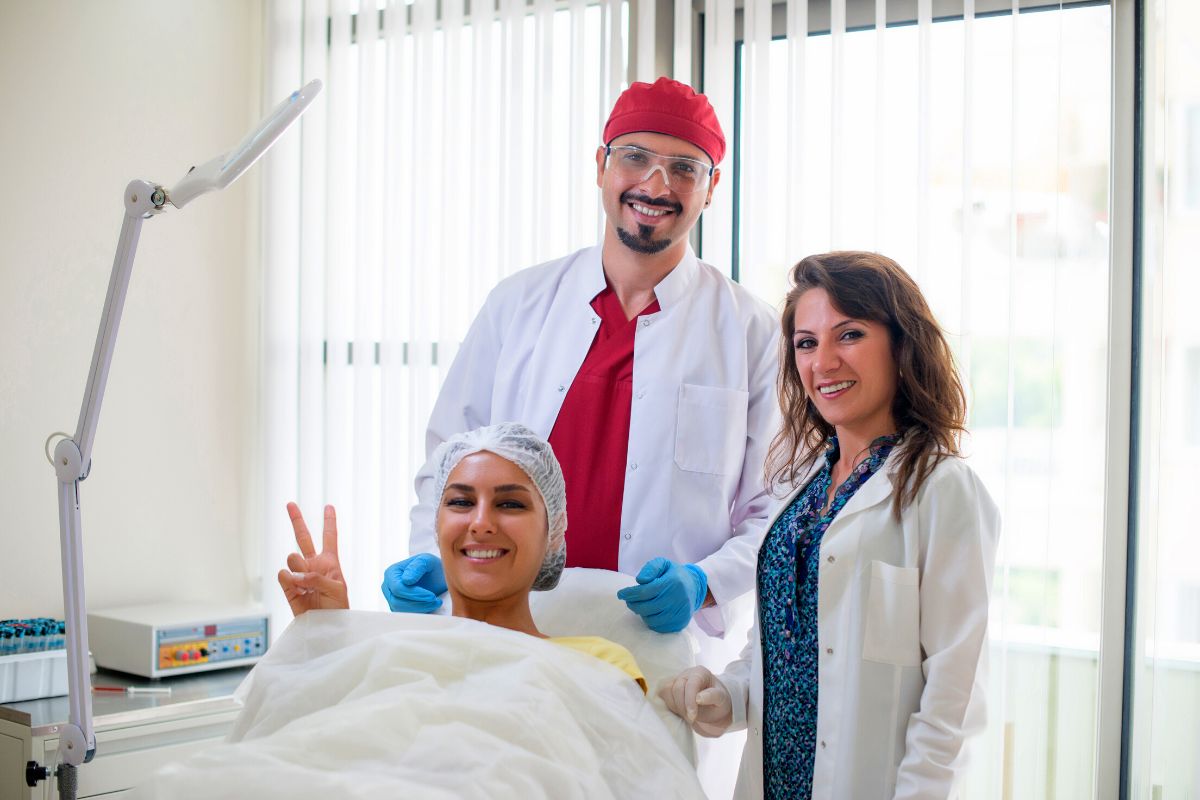Artificial Intelligence (AI) has revolutionized multiple industries and the field of plastic surgery is no exception. AI has made remarkable advancements in the field of plastic surgery, and its impact has been felt by both patients and doctors alike. In this article, we will take a comprehensive look at the impact of AI on plastic surgery.
Improved Surgical Planning
One of the biggest impacts of AI in plastic surgery is improved surgical planning. AI algorithms can be trained to analyze patients’ medical data and generate a simulation of the surgery, allowing doctors to plan the procedure with greater precision. This not only helps doctors to make more informed decisions about the best course of action for a patient, but it also helps to minimize the risk of complications during the surgery.
In addition to improved surgical planning, AI-powered simulations can also provide patients with a better understanding of what to expect from the procedure. This can help to manage expectations and reduce anxiety, leading to better outcomes and higher levels of patient satisfaction.
Improved Precision and Accuracy
AI has also improved the precision and accuracy of plastic surgery procedures. AI algorithms can analyze images and data to identify the smallest details that may be missed by the human eye. This can help doctors to make more informed decisions about the best course of action for a patient, leading to better outcomes and higher levels of patient satisfaction.
In addition, AI-powered tools can also help to minimize the risk of complications during surgery. For example, AI-powered robotic systems can be programmed to perform complex procedures with greater precision and accuracy than human surgeons. This not only reduces the risk of complications but also leads to faster recovery times and less scarring for patients.
Personalized Treatments
Another important impact of AI in plastic surgery is the ability to offer personalized treatments. AI algorithms can analyze patients’ medical data and generate personalized treatment plans based on their unique needs and goals. This not only leads to better outcomes but also helps to reduce the risk of complications and minimize the risk of side effects.
In addition, personalized treatments can also help to improve patient satisfaction. By taking into account a patient’s unique needs and goals, doctors can provide treatments that are tailored to their individual requirements, leading to better outcomes and higher levels of patient satisfaction.
Improved Diagnosis and Screening
AI has also improved the ability to diagnose and screen patients in the field of plastic surgery. AI algorithms can analyze images and medical data to identify potential issues, such as skin cancer, with greater accuracy and speed than traditional methods. This not only leads to earlier diagnoses but also helps to reduce the risk of complications and improve patient outcomes.
In addition, AI-powered screening tools can also help to reduce the risk of complications during surgery. For example, AI algorithms can be trained to identify potential issues, such as blood clots or infections, early on, allowing doctors to take proactive steps to minimize the risk of complications and improve patient outcomes.
Improved Recovery Times
The use of AI in plastic surgery has also led to improved recovery times for patients. AI algorithms can be trained to monitor patients’ vital signs and provide real-time feedback to doctors, allowing them to make more informed decisions about the best course of action for a patient. This not only leads to faster recovery times but also helps to reduce the risk of complications and improve patient outcomes.
In addition, AI-powered tools can also help to minimize the risk of complications during recovery. For example, AI algorithms can be programmed to monitor patients’ vital signs and provide real-time feedback to doctors, allowing them to quickly identify any potential issues and take proactive steps to minimize the risk of complications.
Increased Access to Care
Another important impact of AI in plastic surgery is increased access to care. AI algorithms can be used to diagnose and screen patients remotely, making it easier for individuals in remote or underserved areas to access care. This not only leads to earlier diagnoses but also helps to reduce the risk of complications and improve patient outcomes.
In addition, AI-powered tools can also help to reduce the cost of care. By automating routine tasks and reducing the need for manual labor, AI algorithms can help to lower the cost of care, making it more accessible and affordable for individuals in need.
Improved Outcomes and Satisfaction
The use of AI in plastic surgery has also led to improved outcomes and higher levels of patient satisfaction. AI algorithms can be trained to analyze medical data and identify the best course of action for a patient, leading to better outcomes and higher levels of patient satisfaction.
In addition, AI-powered tools can also help to minimize the risk of complications during surgery and recovery. By providing real-time feedback and monitoring patients’ vital signs, AI algorithms can help to reduce the risk of complications and improve patient outcomes, leading to higher levels of patient satisfaction.
Challenges and Limitations
While AI has made significant advancements in the field of plastic surgery, there are still challenges and limitations that must be addressed. One of the biggest challenges is the lack of standardization in AI algorithms and tools. This can lead to variations in the quality and accuracy of results, making it difficult for doctors to make informed decisions about the best course of action for a patient.
Another challenge is the cost and availability of AI algorithms and tools. While AI has the potential to reduce the cost of care, the high cost of developing and implementing AI algorithms and tools can make it difficult for smaller clinics and hospitals to adopt these technologies.
The Future of AI in Plastic Surgery
Despite the challenges and limitations, the future of AI in plastic surgery is bright. As AI algorithms and tools continue to evolve and improve, they will play an increasingly important role in the field of plastic surgery, leading to better outcomes and higher levels of patient satisfaction.
In addition, the development of new AI technologies, such as machine learning and deep learning, will help to address some of the challenges and limitations of current AI algorithms and tools, making it easier for doctors to make informed decisions about the best course of action for a patient.
Yes Doctor: Streamlining Plastic Surgery with AI
In the field of plastic surgery, there is a growing demand for a one-stop solution that provides a seamless experience for patients. Yes Doctor, a leading company in the plastic surgery field, is at the forefront of this effort, offering a comprehensive solution that connects patients with top board-certified surgeons and provides financing options for their procedures.
Recently, Yes Doctor announced the launch of its advanced AI discovery engine, which streamlines the process of finding aesthetic treatments. This innovative technology uses machine learning algorithms to analyze patients’ medical data and generate personalized treatment plans, making it easier for patients to find the right procedure for their unique needs and goals.
With its advanced AI capabilities, Yes Doctor is poised to revolutionize the field of plastic surgery, making it easier for patients to access care and achieve their desired outcomes. By providing a one-stop solution for all plastic surgery needs, Yes Doctor is leading the way in making plastic surgery more accessible, affordable, and personalized for patients everywhere.
Final Thoughts
The impact of AI on plastic surgery has been significant and far-reaching. From improved surgical planning and precision to increased access to care and improved outcomes and satisfaction, AI has made a big difference in the field of plastic surgery. While there are still challenges and limitations that must be addressed, the future of AI in plastic surgery is bright and holds great promise for patients and doctors alike.












